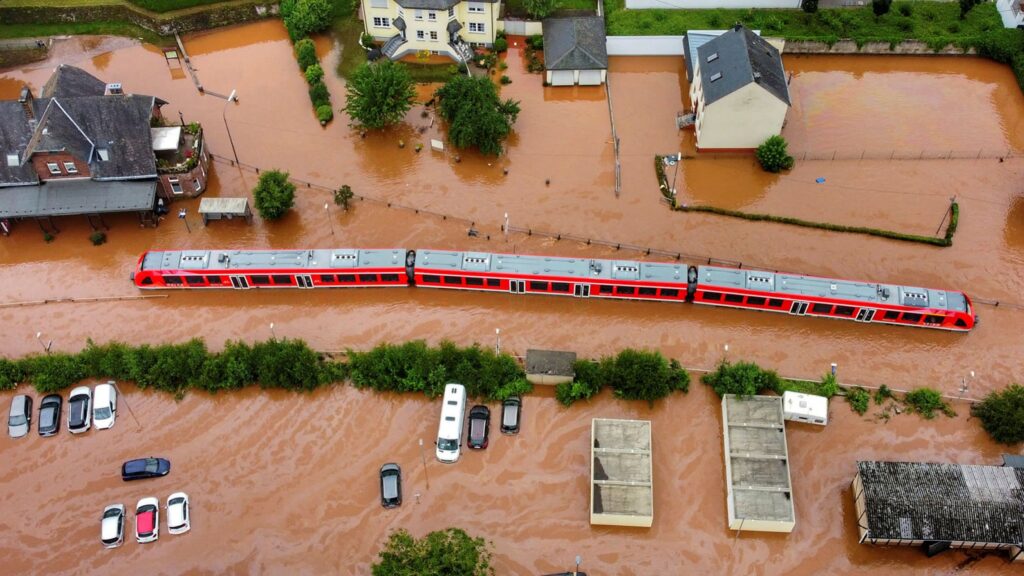Reform and renewal is long overdue in Germany


Germany updates
Sign up to myFT Daily Digest to be the first to know about Germany news.
The author is co-leader of the Green party in Germany and candidate for the chancellorship in the September 26 Bundestag contest
As I write these lines, central Europe — including my home country, Germany — is still grappling with the aftershock of floods that have destroyed entire villages and killed more than 200 people.
Meanwhile, terrible reports have reached us from central China and western India about record-breaking, deadly rainstorms. In southern Madagascar, on the other hand, thousands of families are at acute risk of starvation, as the country is going through the worst drought it has experienced in four decades. And dozens of fires are burning across vast areas of the North American continent as well as in the south of Europe.
It would be an oversimplification of the science to attribute each of these events to climate change alone. Nevertheless, there is a broad consensus among experts that global warming increases the likelihood of such extremes of weather — not only over the next few decades, but today. To put it bluntly, the climate crisis is happening right now. If we want to curb it successfully, we need to act fast.
Germany, which was once a global pioneer of climate protection, has fallen behind. For more than 15 years, Angela Merkel, the outgoing Christian Democratic chancellor, has led by character and by example. To many people in the world, she has been the face of a friendly and reasonable, reliable and open-minded Germany.
However, by often trying to preserve what used to work well in the past, her governments have largely missed out on shaping the future — in terms of climate protection and beyond.
Many of our schools are in bad shape and digitalisation is significantly less advanced than it should be. In Germany, one of the richest countries in the world, more than one in five children grow up below the poverty line. In 2020, not a single new kilometre of railway track was put into operation.
Thus, when citizens go to the polls to elect a new Bundestag on September 26, they will decide on the fate of a country that stands in dire need of reform and renewal. As the Green candidate for chancellor, this is my offer: reform and renewal.
In its election programme, my party has put forward proposals to invest an additional €50bn a year in the digital and environmental transformation of our country. Indeed, compared with other industrialised economies, Germany’s public investment rate has been particularly low for years. With interest rates near zero, a failure to undertake such investment would leave future generations with a much heavier burden of poor infrastructure.
I believe that many of these investments should support the fight against the climate crisis in areas such as renewable energies, agriculture and mobility. We must make climate neutrality the new engine of prosperity.
To secure both good jobs and our competitiveness on the markets of the future, carbon neutrality will be essential. We will need to focus all our efforts on the socio-ecological transformation of our economy — in Germany, but also on a European level.
After all, tackling the climate crisis is a challenge we will only accomplish together, in close co-operation, and by helping developing countries as well as emerging economies leave or entirely jump the fossil fuel phase.
After years of political reservation and hesitation, the German government should therefore play a more active role again on the international scene, especially in Brussels. I want Germany to lead by example — and to extend an invitation to anyone who is willing to join the cause of a carbon-neutral world economy that strives towards global climate justice.
In this regard, as much as the British decision to leave (at least temporarily) our home that is the EU is to be regretted, I am convinced that any kind of closer international collaboration — including with the Biden-Harris administration in Washington — should ideally run in tandem with London. To give but one example, when I suggest creating a US-European working group at ministerial level to agree upon ambitious common goals for the upcoming COP26 summit in Glasgow, I would like to make it clear that the UK is more than cordially invited to join in. We have much to learn from one another.
What we need, in the end, is a new and shared understanding of how we produce and consume, of how we can live our lives in a way that no longer comes at the cost of ecological damage, economic exploitation or global injustice.
What we need is change. For in a world that is in a state of perpetual transformation, it is change — and only change — that offers stability.